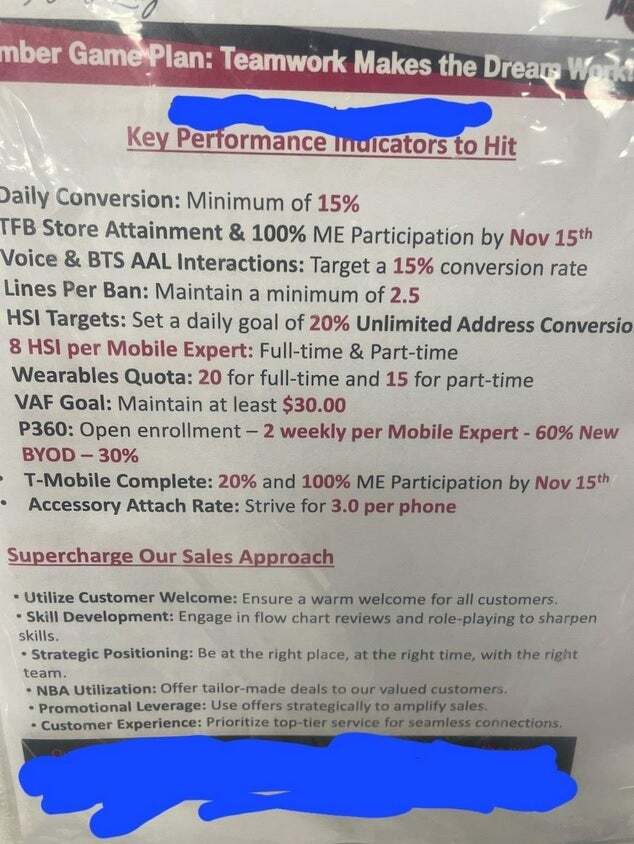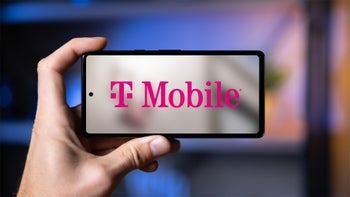Why reps at T-Mobile corporate-owned stores hate those working at TPR stores
Reps working at T-Mobile corporate stores are tired of cleaning up messes made by TPR reps.

In the past, we've explained the differences between a T-Mobile COR (corporate-owned) store and a TPR (T-Mobile Premium Retailer) retail location. The latter stores are owned and operated by third-party companies and while the branding and the products are mostly the same, the TPR stores are independently run. T-Mobile and the third-party company typically sign a contract that details the obligations of both sides.
It might not be easy for you to determine whether you are inside a T-Mobile corporate store or a TPR. There will be small signs, possibly on the storefront window, that say "Authorized Retailer" or "Independent Retailer" at a location owned and operated by a third-party. But these are usually much smaller than the huge brand signage that screams "T-Mobile."
The use of monthly goals or "metrics" puts pressure on both T-Mobile COR and TPR reps
In the past, we've told you about the metrics that T-Mobile reps must meet every month. Those working at TPR stores supposedly have higher goals to meet than the reps working in corporate-run stores. That might explain why we hear that shady sales practices take place more often inside TPR locations. You know what we are talking about. Adding accessories such as a case, a battery charger, insurance, additional phone lines, and other items to a customer's purchase without their consent has been a major issue at stores run by third-party companies.

Leaked image shows monthly goals for an unnamed rep working at a T-Mobile corporate store. | Image credit-Reddit
Reps working at corporate stores are getting tired of having to deal with the fallout caused by the shady practices of some TPR reps. One COR rep wrote on Reddit, "...franchise/authorized retailers get away with the wildest tactics just to hit their numbers. We’re out here doing things the right way — no shady pitches, no burying add-ons just to hit goals — and somehow we end up cleaning up the mess they leave behind." One former TPR rep who was laid off said that in the short time he worked there, "I’ve seen some stuff."
The rep in the corporate-owned store says that credit for a sale should go to the person who completes the port-in if a customer is moving over his existing number from another carrier. "If the sale starts in a channel, it should finish there," he writes. One reason why he says frontline reps are tired is because they are dealing with "the mess of every other channel."
T-Mobile is supposedly transitioning to a business model that eliminates retail stores and focuses on using an app
Besides having to clean up messes made by TPR reps, it appears that some members of the COR sales team are getting stressed having to handle "every aspect of someone's digital life." This corporate store rep notes that "Customers now expect us to store their passwords, reset Gmail or Apple logins, or fix their third-party apps like we’re Genius Bar techs." This hits T-Mobile reps right in the wallet because it uses up time that could be used to make sales which is the only thing that these reps get paid to do.
Many believe that T-Mobile is slowly transitioning to a business model that does away with all stores altogether relying instead on an app that customers would access to make changes to their T-Mobile account, buy new phones, and chat with a T-Mobile employee to solve an issue. This model is similar to how several pre-paid MVNOs do business such as Verizon-owned Visible. Such a business model might allow T-Mobile to reduce prices. The carrier has started pushing its T-Life app as a tool that customers can use in almost all situations.
We've reached out to T-Mobile for a response. If the company responds, we will update this article.
Follow us on Google News














Things that are NOT allowed:
To help keep our community safe and free from spam, we apply temporary limits to newly created accounts: